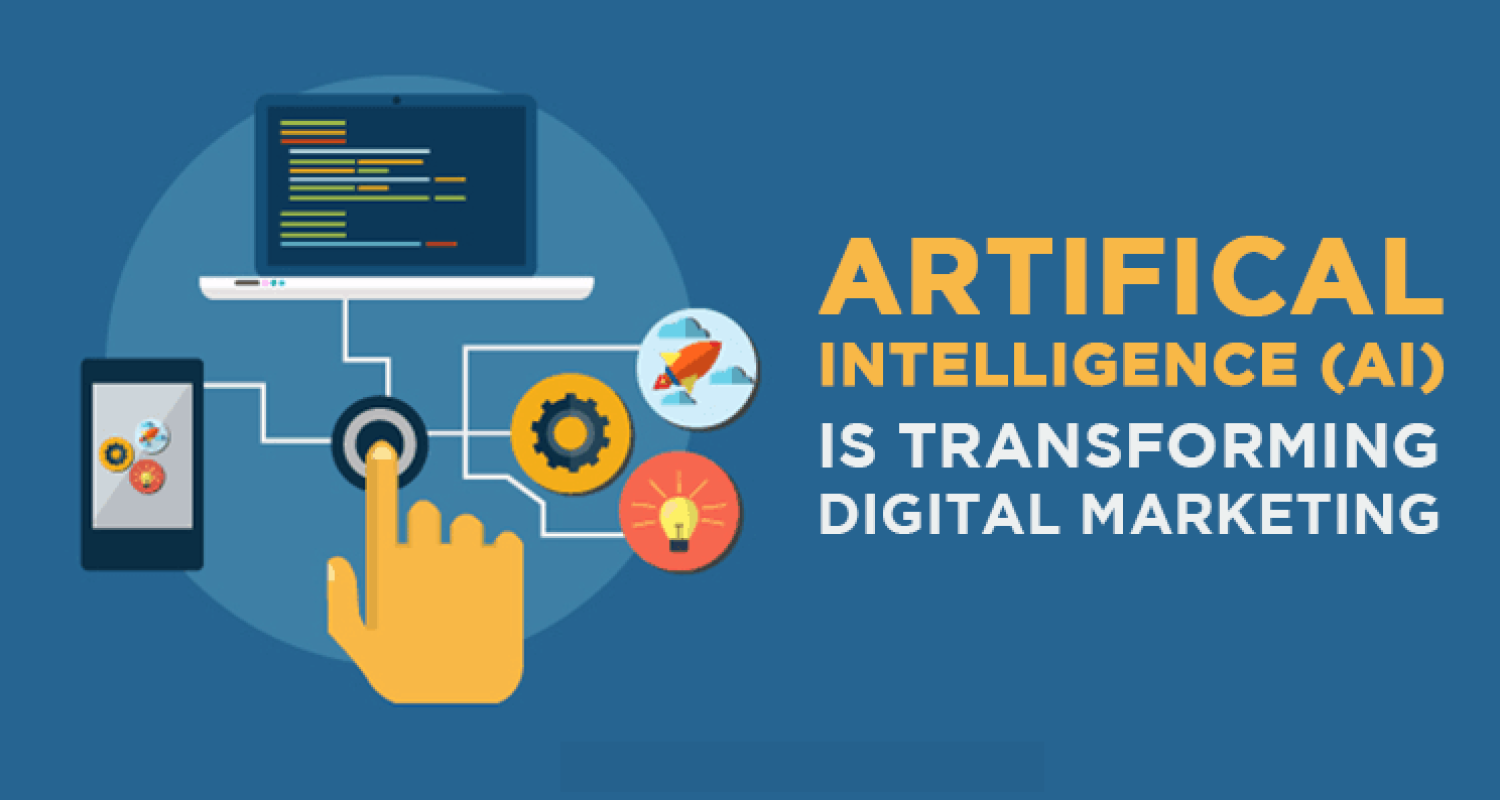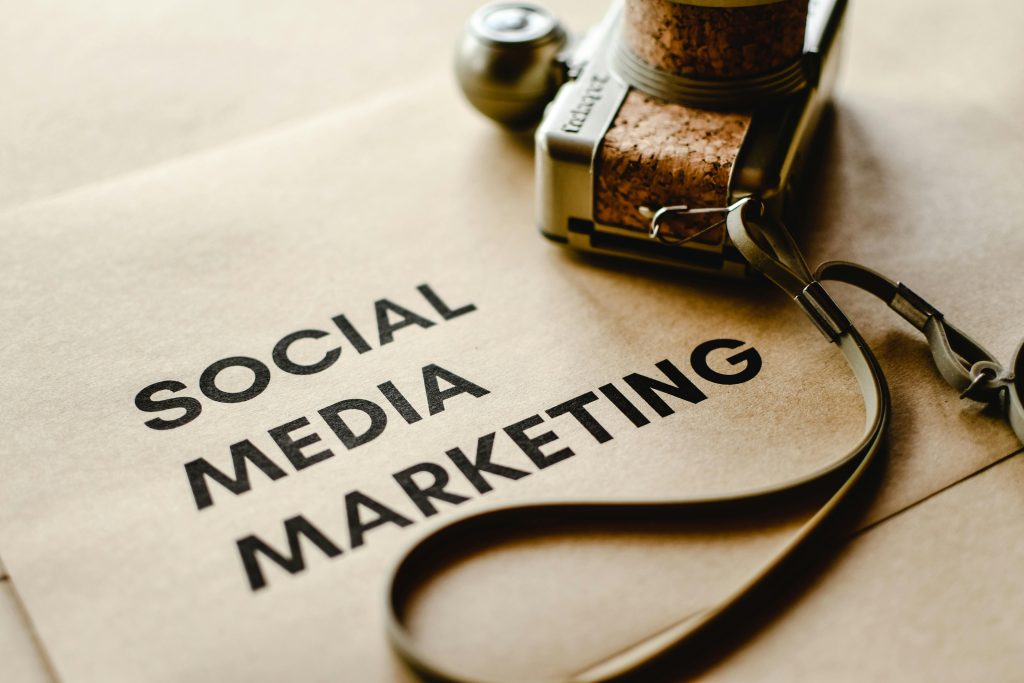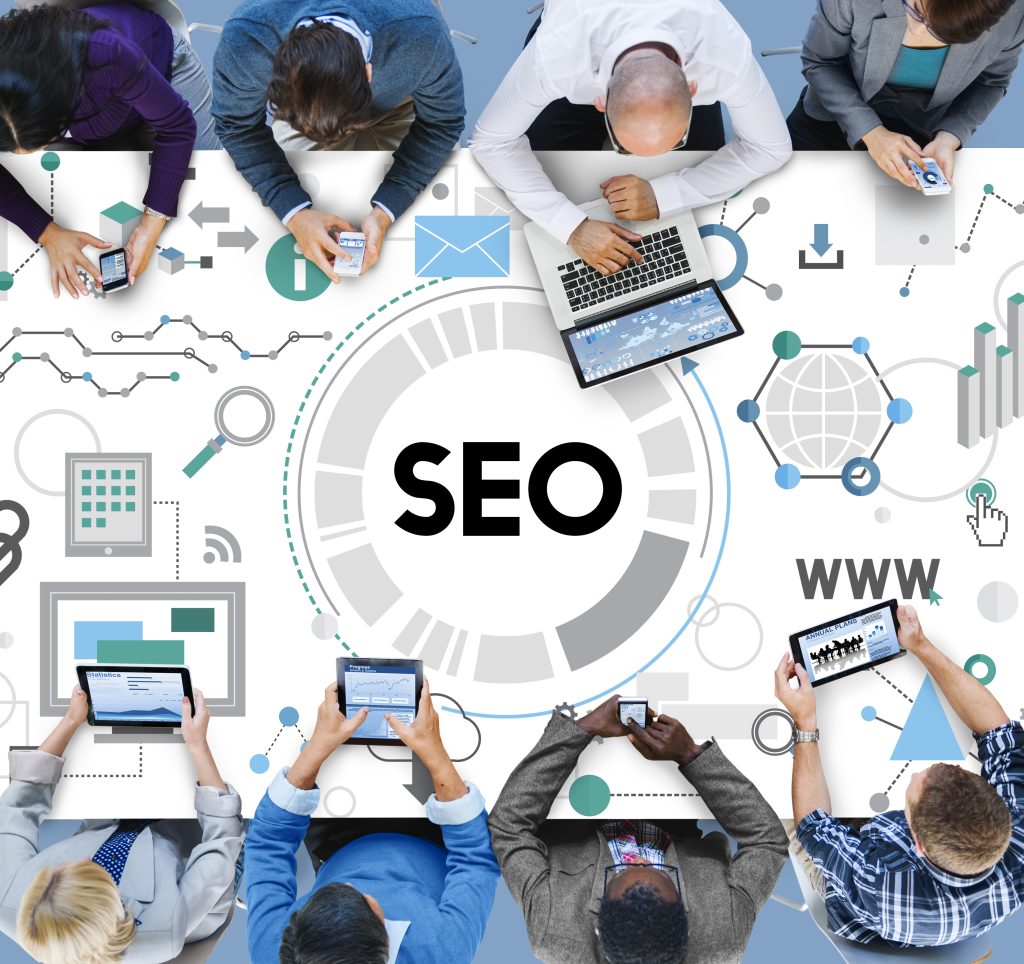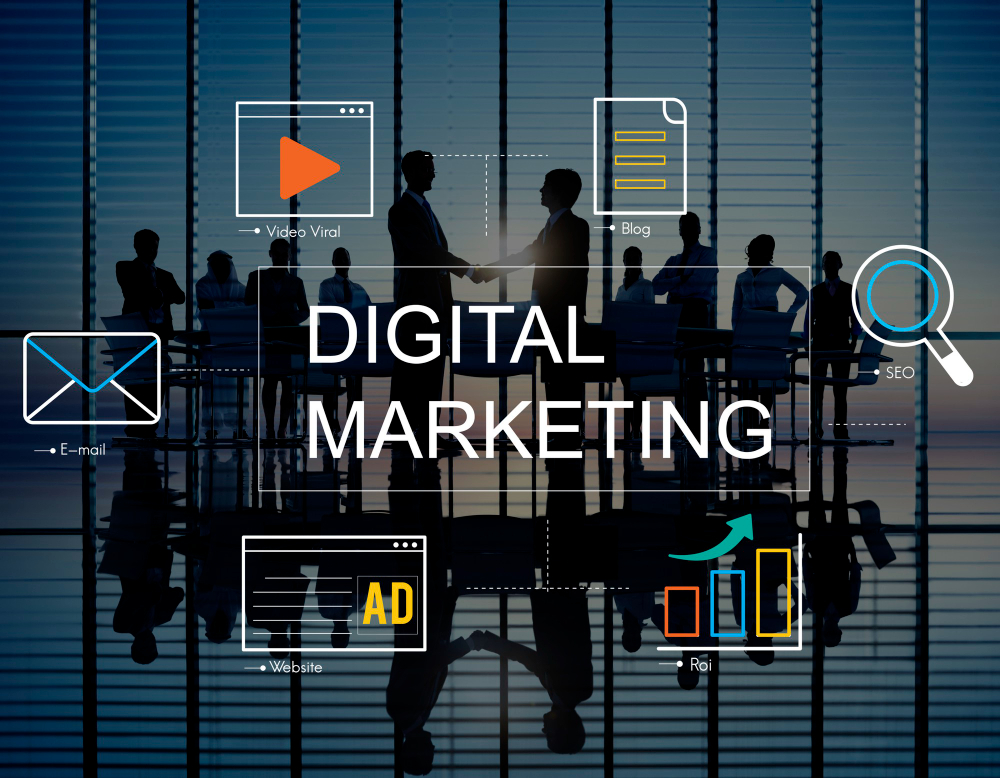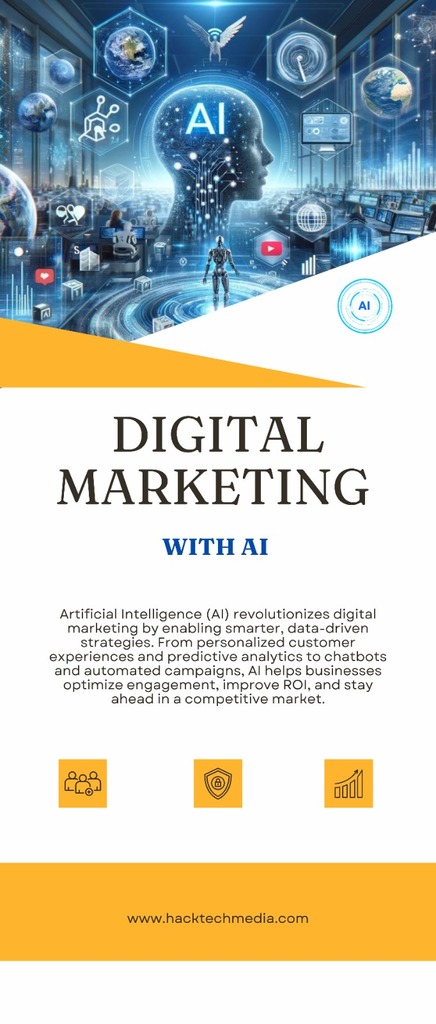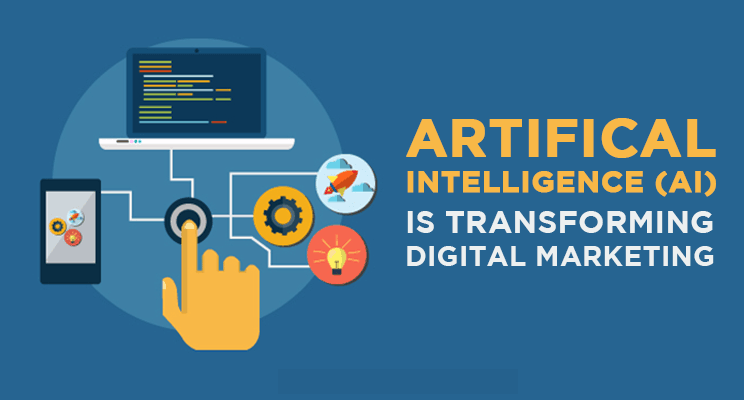
In today’s fast-paced digital world, businesses must stay ahead of the curve to maintain their competitive edge. One of the most significant technological advancements driving change in digital marketing is Artificial Intelligence (AI). AI has emerged as a game-changer, offering companies new ways to optimize their marketing strategies, personalize customer experiences, and improve overall performance. From targeted advertising to content creation, AI in digital marketing has transformed the way brands interact with consumers. This article explores the role of AI in transforming digital marketing strategies and the many benefits it brings to businesses.
The Emergence of AI in Digital Marketing
Artificial intelligence is no longer a futuristic concept. It is actively shaping various industries, and marketing is no exception. The integration of AI into digital marketing is enabling businesses to automate tasks, analyze large sets of data, and provide personalized experiences on an unprecedented scale. By leveraging AI in digital marketing, brands can predict consumer behavior, optimize campaigns, and improve overall marketing efficiency.
AI-driven marketing focuses on using machine learning algorithms to gain insights from customer data, allowing companies to better understand their audience and make data-driven decisions. It also enhances the ability to deliver highly targeted marketing campaigns, ensuring that the right message reaches the right audience at the right time.
Personalized Marketing Solutions
One of the most impactful uses of AI in digital marketing is personalization. With the help of AI, brands can create tailored experiences for their customers, increasing engagement and loyalty. AI-powered tools can analyze customer data such as browsing behavior, purchase history, and preferences to deliver personalized content, product recommendations, and offers.
For instance, companies like Amazon and Netflix use AI to recommend products and movies based on users’ past interactions, creating a highly personalized experience. Personalized marketing solutions not only enhance customer satisfaction but also drive conversions and boost sales. As consumers increasingly expect brands to cater to their individual needs, AI-driven marketing will become an essential component of digital strategies.
Machine Learning in Marketing
Machine learning, a subset of AI, plays a crucial role in transforming digital marketing strategies. Through machine learning, AI systems can learn from data, identify patterns, and make predictions with minimal human intervention. In marketing, machine learning is used to analyze vast amounts of customer data and identify trends that can inform decision-making.
Machine learning in marketing allows businesses to predict customer behavior, optimize campaigns in real-time, and improve targeting efforts. By continuously learning from new data, machine learning algorithms can help marketers identify the most effective strategies for reaching their audience, thus maximizing return on investment (ROI).
Predictive Analytics and Customer Data Analysis
AI’s ability to process and analyze large datasets has revolutionized customer data analysis. Through AI-powered predictive analytics, marketers can forecast future trends, behaviors, and outcomes based on historical data. This allows brands to anticipate customer needs and adjust their strategies accordingly.
Predictive analytics is particularly useful for identifying potential leads, improving customer retention, and optimizing marketing budgets. For example, AI can predict which customers are most likely to make a purchase, enabling businesses to focus their efforts on high-value prospects. Furthermore, AI can analyze customer feedback and sentiment, providing insights into how customers perceive a brand and what improvements can be made.
Marketing Automation Tools
Marketing automation has become a critical component of modern digital marketing strategies, and AI is driving this transformation. AI-powered marketing automation tools allow businesses to automate repetitive tasks such as email marketing, social media posting, and customer segmentation. These tools not only save time but also improve efficiency by ensuring that marketing efforts are consistent and timely.
AI-driven marketing automation tools can analyze customer interactions and trigger personalized responses based on specific actions. For example, if a customer abandons their shopping cart, AI can automatically send a reminder email with a personalized offer, increasing the chances of conversion. The use of marketing automation tools enables businesses to scale their marketing efforts while maintaining a high level of personalization.
Customer Engagement with AI
Customer engagement is at the heart of successful digital marketing strategies, and AI is helping brands enhance their engagement efforts. AI-powered chatbots and virtual assistants are becoming increasingly popular for providing real-time customer support and answering queries. These tools can handle a wide range of tasks, from processing orders to providing product recommendations, all while delivering a seamless user experience.
AI can also be used to personalize customer interactions across various channels, such as social media, email, and websites. By analyzing customer data, AI can determine the best time to engage with a user and the most relevant content to share. This level of personalization not only improves customer satisfaction but also increases the likelihood of repeat business.
Targeted Advertising with AI
Targeted advertising is another area where AI is making a significant impact. AI algorithms can analyze user behavior, preferences, and demographics to deliver highly targeted ads to specific audience segments. This ensures that businesses are not wasting their ad spend on irrelevant audiences but are instead reaching potential customers who are more likely to convert.
AI-driven targeted advertising allows for real-time optimization, meaning that ads can be adjusted based on performance and user engagement. By delivering more relevant and timely ads, businesses can increase click-through rates (CTR) and conversion rates, ultimately improving their overall marketing performance.
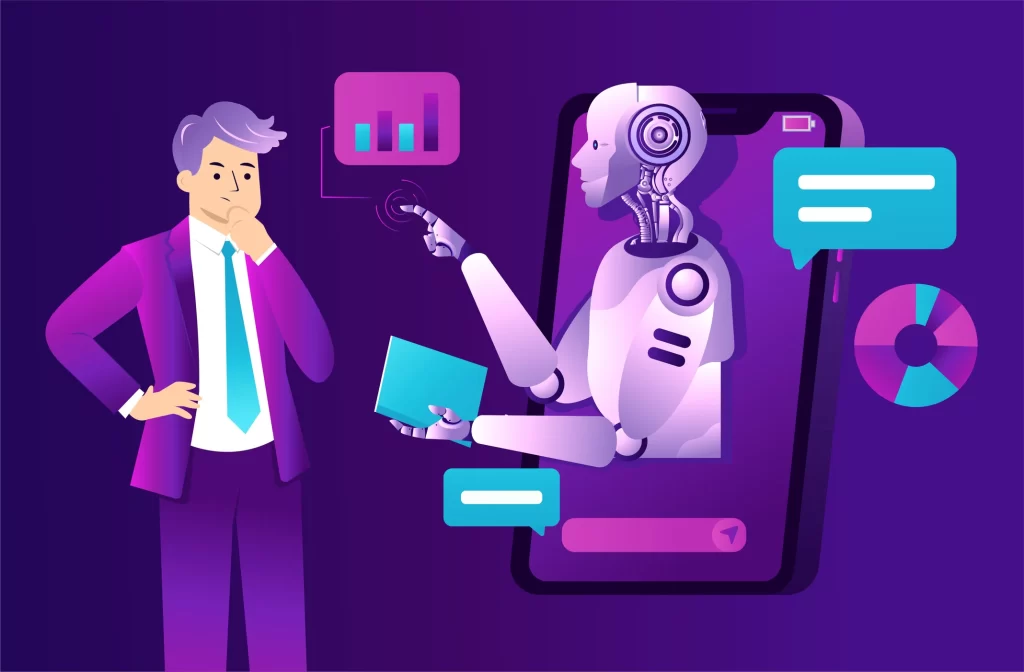
Content Creation with AI
AI is also transforming the content creation process. While human creativity is still essential, AI-powered tools can assist marketers in generating content ideas, writing product descriptions, and even creating blog posts. These tools use natural language processing (NLP) algorithms to understand context and generate coherent and relevant content.
For instance, AI-powered content generators can help marketers produce high-quality content at scale, saving time and resources. This is particularly useful for creating product descriptions, social media posts, and email campaigns. While AI may not replace human writers, it certainly enhances the content creation process by making it more efficient and data-driven.
AI-Powered Insights for Digital Advertising
AI-powered insights are transforming the way businesses approach digital advertising. By analyzing campaign performance in real-time, AI can provide actionable insights that help marketers optimize their ads for better results. These insights can include data on user engagement, click-through rates, conversion rates, and more.
With AI-powered insights, businesses can make data-driven decisions that improve the effectiveness of their digital advertising efforts. For example, if an ad is underperforming, AI can suggest changes to the ad copy, visuals, or targeting to improve results. This level of optimization ensures that businesses are getting the most out of their advertising budgets.
The Future of Marketing with AI
As AI continues to evolve, its role in digital marketing will only grow stronger. The future of marketing lies in the ability to deliver highly personalized experiences, automate tasks, and make data-driven decisions. AI will enable businesses to connect with their customers on a deeper level, creating more meaningful and engaging interactions.
In the future, we can expect AI to play an even more significant role in areas such as augmented reality (AR) marketing, voice search optimization, and advanced customer journey mapping. As AI-powered tools become more sophisticated, marketers will have access to even more powerful insights and automation capabilities, allowing them to stay ahead of the competition.
Conclusion
AI is transforming the landscape of digital marketing by offering businesses new ways to optimize their strategies, personalize customer experiences, and improve overall efficiency. From machine learning and predictive analytics to marketing automation and content creation, AI-driven marketing is revolutionizing how brands interact with consumers. As AI continues to evolve, businesses that embrace this technology will be better positioned to thrive in an increasingly competitive digital marketplace.

